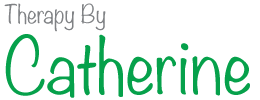Co-dependence
 When we grow up in a family, our brains are like blank slates. We are born with our own personalities, but not how to navigate in the world. We do not know that the family dynamic in which we live may be dysfunctional. We are born with our brains only partially developed so everything about how we relate to the world has to be learned from our families and other social situations in our lives. If we are not taught healthy ways of relating, we may life an entire life causing harm to our own healthy development as well as that of others.
When we grow up in a family, our brains are like blank slates. We are born with our own personalities, but not how to navigate in the world. We do not know that the family dynamic in which we live may be dysfunctional. We are born with our brains only partially developed so everything about how we relate to the world has to be learned from our families and other social situations in our lives. If we are not taught healthy ways of relating, we may life an entire life causing harm to our own healthy development as well as that of others.
Co-dependence is one of those ways of relating to the world that lessens our ability to live a whole, fully functional, and fulfilling life as well as lessening the respect we show to others in our lives.
Here is a list of co-dependent characteristics:
- Please others to gain approval
- Focus more on others instead of self
- Gets self-esteem from helping others
- Has trouble setting boundaries
- Worries excessively about others
- Feels overly responsible
- Difficulty identifying wants and needs
- Thinks it’s their job to save others
- Feels anxious when others are hurting
- Can’t say no without feeling guilty
- Making mistakes triggers shame
Someone does not become codependent on his/her own. When I see co-dependence in someone, I explore further about one’s childhood. What I am about to say is not comprehensive but reflects what I commonly see in my practice.
Parents may be depressed, ill, too busy with other children and are not able to fully mirror the child in question. The child loses out on some important individuation, self esteem and sense of the importance of her/his own life. The child is often co-opted into helping the parent in a way that is not healthy for the child. On the contrary, chores and contributing to the household are necessary for the development of self esteem. The unhealthy helping I am speaking about is at the expense of the child’s own development and acknowledgement.
Parents may also be impatient with their child when the child tries to perform tasks. Children’s brains are growing and they need practice to master the world. The parents step in and do it for the child if they are concerned about timeliness or about things being done perfectly. They are then completing a task the child is not allowed to finish. This deprives the child of confidence and self esteem and more importantly, a sense of self (individuation).
Co-dependence can also come about as a result of abuse of all kinds. In order to be safe, the child has to predict a parent’s bad mood or behavior and act a certain way in order to be safe.
When this child becomes an adult, all self esteem is derived from helping others and the child is continuing a pattern of low self esteem by not focusing on shining for their own accomplishments. They have so little sense of self, they may not know what their own opinions are or not know their own likes or dislikes. A pseudo sense of self-esteem is derived from helping others or interfering with others.
What is more problematic is that co-dependent people have poor boundaries and interfere with the lives of others by crossing their boundaries. They are thus propagating the dysfunction with which they grew up.
How to turn it around?
- I address healthy boundary setting. I use the analogy of a vase that is commonly used for flowers. A vase is strong enough to hold in water and not leak. Water is a metaphor for one’s identity and self esteem. Flowers are a metaphor for self esteem. By having a defined and strong boundary, the vase holds a person’s identity intact and self esteem grows. If there is a hole in the vase, the water leaks out and self esteem is not allowed to grow and the flowers wilt.
- I find out what the person likes doing and inquire if they get any mirroring or praise for those talents, attributes or interests. For example, someone may be a good writer but no one in the family comments on how wonderful that talent is, or the person loves dancing and the dancing is either ignored or even made fun of. I encourage them to find people who appreciate their talents or if doing couples or family therapy, I encourage others in the family to support the talents and interests of the person.
- I coach the person to learn to say “no” and to learn to tell others “thank you, I do not care to do that” or something similar. By saying no when a person does not want to do something, he/she is building a strong vase. Codependent people often do not even recognize that they like or do not like something and don’t know how to say no.
- I teach assertive communication which means “calm and direct as well as truthful”. Codependent people may be so afraid of telling the truth of their feelings that they look away, agree in a lukewarm fashion or simply avoid conflict altogether. It takes practice and I work on it in session over and over. I also do role-plays which are hugely successful with most people.
There is more, as well.
If you need help with this, I will be happy to help you! Due to the pandemic, I see people via telehealth but if you are in the area of my office (Cameron Park, CA) and do not travel outside of the area for work or other reasons, I can see you in person. Contact me for a free phone conversation to determine if I am the right therapist for you.
